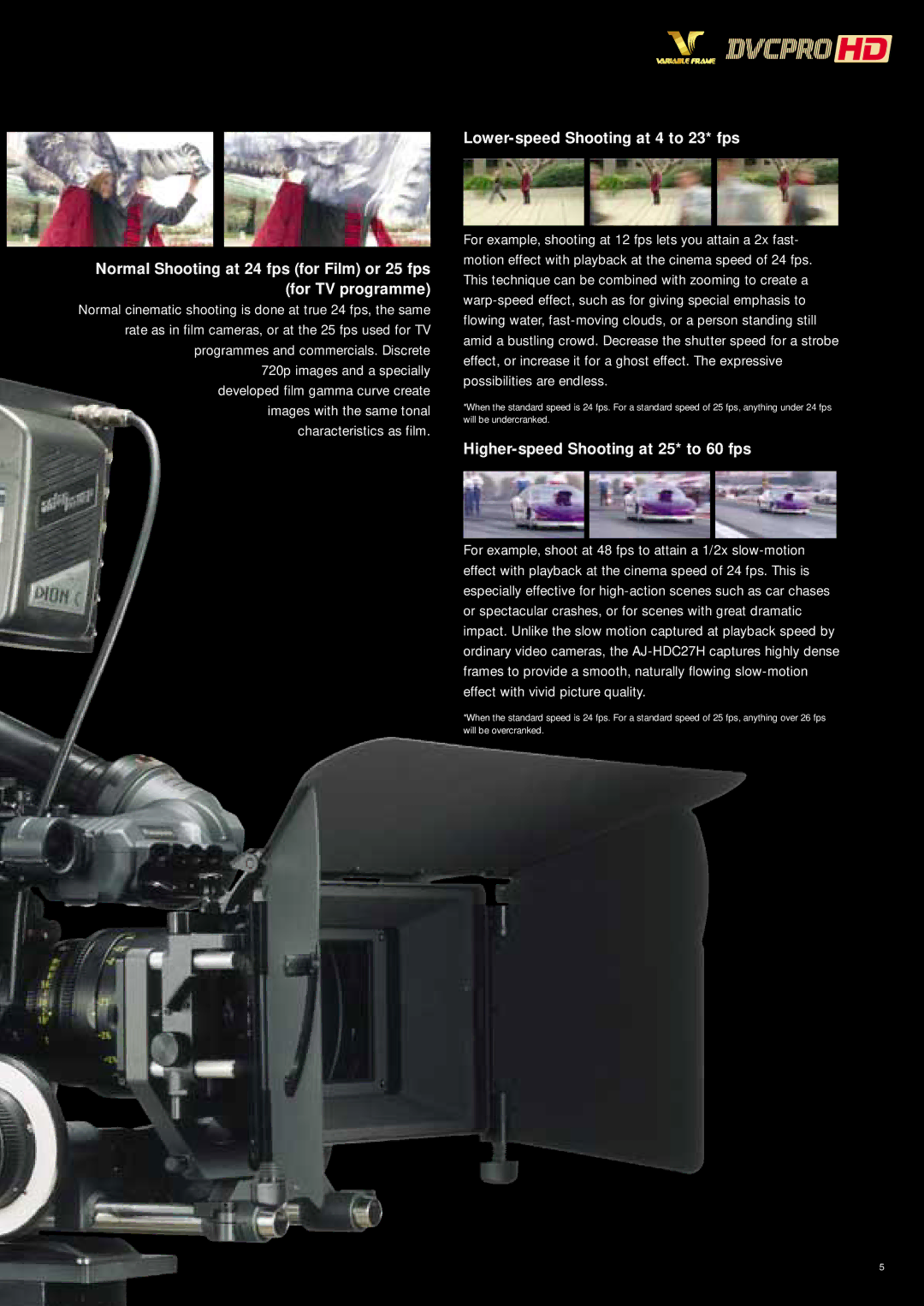
Normal Shooting at 24 fps (for Film) or 25 fps (for TV programme)
Normal cinematic shooting is done at true 24 fps, the same rate as in film cameras, or at the 25 fps used for TV programmes and commercials. Discrete 720p images and a specially developed film gamma curve create images with the same tonal characteristics as film.
Lower-speed Shooting at 4 to 23* fps
For example, shooting at 12 fps lets you attain a 2x fast- motion effect with playback at the cinema speed of 24 fps. This technique can be combined with zooming to create a
*When the standard speed is 24 fps. For a standard speed of 25 fps, anything under 24 fps will be undercranked.
Higher-speed Shooting at 25* to 60 fps
For example, shoot at 48 fps to attain a 1/2x
*When the standard speed is 24 fps. For a standard speed of 25 fps, anything over 26 fps will be overcranked.
5
